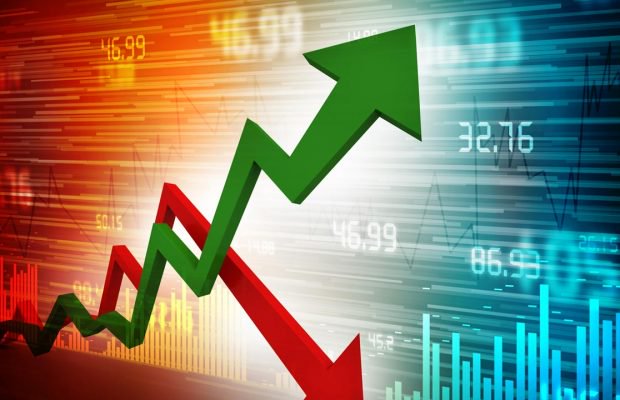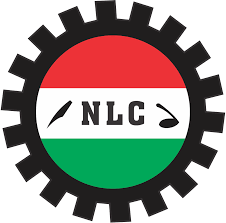Editorial
FG must take proactive measures in curbing the escalating food costs
Over the past two years, food prices have consistently risen, but the sharp surge in food inflation between December 2022 and December 2023 can be attributed to the federal government’s decision to completely withdraw from fuel subsidy in June of the previous year.
Recent reports have highlighted the relentless escalation of food prices, which, if left unchecked, could lead to severe hunger for many families across the country.
In the 2023 Global Hunger Index, Nigeria ranked 109th out of 125 countries, with a staggering 28.3 percent of its population experiencing hunger.The current trend of inflation in food commodities is undeniably alarming and poses a significant danger to the nation.
Life has become increasingly challenging for the majority of Nigerians on a daily basis, and this situation is likely to worsen as the holy month of Ramadan approaches. If the majority of the population cannot afford to feed themselves adequately, the country’s collective agenda for development and the hope for an improved quality of life for its over 200 million citizens will remain nothing more than wishful thinking.
However, the soaring inflation rate in Nigeria, currently at a record-high of 28.92 percent, has had a profound impact on various aspects of the socio-economic life of its citizens. However, none has been as burdensome as the exorbitant cost of food items.
According to the National Bureau of Statistics (NBS), food inflation reached a staggering 33.93 percent in December 2023, marking a significant increase of 10.18 percent from the previous year.
The current minimum wage of N30,000 per month is woefully inadequate and fails to meet the basic needs of workers. The general rule of thumb for determining food affordability is that an average meal should not cost more than a worker’s hourly income, which, based on the current national minimum wage, amounts to a mere N187.5.
Unfortunately, it is nearly impossible to find an average meal at such a low price in Nigeria. Today, an average Nigerian worker supporting a family of four would need to spend more than half of their monthly income on food alone, leaving very little for essential expenses such as healthcare, transportation, rent, children’s school fees, and utility bills.
When the bellies of the nation are filled with affordable food, the entire country reaps the rewards. It’s not just about satisfying hunger, but about nourishing the body and promoting good health. With access to cheap and nutritious food, the scourge of malnutrition, undernutrition, and starvation can be kept at bay.
A well-fed population is a healthy population, and that means less strain on the healthcare system and fewer medical expenses for the government.But the benefits go beyond health and economics.
The affordability of food is a matter of national security. When the majority of citizens can comfortably enjoy three square meals a day, peace and political stability become more attainable.
Hunger breeds discontent and anger, and history has shown us that food shortages can ignite social unrest and threaten the very fabric of society. Just look at the flour war in France back in 1775, where skyrocketing food prices sparked over 300 riots.
To ensure a thriving agricultural sector in Nigeria, we must create an environment that supports and prioritises crop and animal production. With a vast expanse of arable land, the potential for agricultural success is immense.
It’s time for the government to step up and provide the necessary support. This means subsidising fertilizers and farm implements, as well as following through on partnership agreements, such as the one with Morocco to build a state-of-the-art fertiliser plant. By investing in agriculture, we not only make food more affordable for our citizens but also tackle poverty and unemployment head-on.
It’s a strategic move that requires careful planning and unwavering commitment.
The government needs to take decisive action in addressing the various security threats faced by farmers and the agricultural sector. In order to ensure that cheap food is readily available to all, it is crucial to improve the road networks, particularly in rural areas of Nigeria, to facilitate the transportation of farm produce to markets.
Furthermore, the impact of climate change on traditional farming practices necessitates the revival and strengthening of river basin authorities to promote dry-season farming.To support real farmers, the Bank of Agriculture should make it easier for them to access credit facilities.
Given the interconnected nature of food production, marketing, and demand, the re-establishment of marketing boards is recommended.
These boards can counter artificial market forces and prevent exploitative practices by middlemen. By purchasing excess farm produce from farmers and releasing it into the market when prices rise, marketing boards can ensure price stability.
Nigeria possesses abundant human and material resources, making it capable of providing affordable food to its population.
However, urgent measures must be taken to address the current dire situation. The government should prioritise the welfare of its citizens by implementing policies that effectively combat inflation and stabilize food prices.
Additionally, efforts should be made to increase the minimum wage to a level that enables workers to maintain a decent standard of living.
Failure to take immediate action will only worsen the suffering of the Nigerian people and impede the nation’s progress towards development and prosperity.
Let’s seize this opportunity to transform our nation’s food system and pave the way for a brighter future. Together, we can ensure that no Nigerian goes to bed hungry and that our country thrives on the strength of a well-fed and prosperous population.
Editorial
Minimum wage Saga: FG, let the people go…


For years, the narrative has been the same — the economy withers and the common man cries out for reprieve, only to be met with an endless array of impediments. When it is time to intercede for the poor, Nigerians are met with pointless bureaucracy and palliatives. Foreign aid is rendered ineffectual thanks to the gauze-hand of leaders, through which it all slips through into an oblivion of their own invention.
In April 2024, the headline inflation rate rose to 33.69 percent, up from 33.20 percent in March 2024, marking an increase of 0.49 percent points according to the Nigeria Bureau of Statistics (NBS). Yet, to raise the minimum wage to a level that will help beat back hunger in the poorest families has become a problem for the government.
Per the International Monetary Fund, IMF, a determined and well-sequenced implementation of government’s policy intentions would pave the way for faster, more inclusive, resilient growth in Nigeria. Without reforms — such as raising the minimum wage — to enhance the business environment, improve security, implement key governance measures, develop human capital, boost agricultural productivity, Nigeria’s growth potential will never leave the realm of imagination.
“These reforms are crucial to boost investor confidence, unlock Nigeria’s growth potential and diversify the economy, and address food insecurity, and underpin sustainable job creation,” IMF noted in its recent report, adding that over the last decade, limited reforms, security challenges, weak growth and now high inflation had worsened poverty and food insecurity in Nigeria.
“While Nigeria swiftly exited the COVID-19 recession, per-capita income has stagnated. Real Gross Domestic Product (GDP) growth slowed to 2.9 percent in 2023, with weak agriculture and trade, and in spite of the improvement in oil production and financial services.
“Growth is projected at 3.3 per cent for 2024 as both oil and agriculture outputs are expected to improve with better security. The financial sector has remained stable, in spite of heightened risks. Food insecurity could worsen with further adverse shocks to agriculture or global food prices. Adverse shocks to oil production or prices would hit growth, the fiscal and external position, and exacerbate inflationary and exchange rate pressures,” the IMF said.
Yet, on Wednesday the pattern continued. Negotiations reached a deadlock due to the government’s perceived unwillingness to engage in fair discussions with Nigerian workers. The NLC National President, Joe Ajaero, in a sense is right to say that the government’s proposal of N48,000 as the new minimum wage is an insult to Nigerian workers.
It is no surprise that the labour unions are demanding a higher minimum wage to reflect the current economic realities and alleviate the suffering of Nigerian workers. The stalemate in negotiations may lead to industrial action, which could have far-reaching consequences for the economy.
Many labour in vain for decades for peanuts, only to be denied their pensions in old age. Of course, the Nigerian worker will down his tools in the face of great poverty, and seeming apathy from the government. The relationship between wage rate and employment is well established. Most revolutions throughout the world are dependent on the satiation of the labour force. The Federal Government should maintain an atmosphere of charity and responsibility. Like the Israelite Moses said millennial ago, let our people go.
Editorial
Inflation as major threat to life security


Millions of Nigerians are groaning because of the devastating inflationary pressure that is making it impossible for many to consume the minimum calories required for a healthy living.
It is known that Nigeria’s macroeconomic environment has become very harsh in its diminutive impact on the purchasing power at the disposal of the citizenry.
Many cannot also conveniently afford to transport themselves to their workplace or move around for routine activities.
Meanwhile, the price of other payment obligations for services such as house rents, school fees, utilities (including cable television), health and recreation services are rising on a daily basis.
This shows that the quality of life enjoyed by Nigerians is deteriorating as poverty becomes more pervasive and endemic.
According to official statistics, the November inflation rate was 14.89 percent and it is fast heading towards the 15 percent mark.
Meanwhile, the Rural inflationary pressure is also climbing as the rate climbed to 12.28 percent in July even when the price of Premium Motor Spirit and electricity tariff had not been hiked. Prices are just rising freely.
This applies to production inputs (except labour), consumer durable, agricultural products as well as services.
This unfortunately is the case irrespective of the basket of goods one uses as a measure outside the standard yardstick.
A close look at the policy framework of the government shows that the recent surge in general price level is not unconnected with structural bottlenecks, fiscal and monetary policies, deregulation, and trade policies as well as inefficiency on the part of regulatory agencies.
The government has for too long paid lip service towards unbundling of the shackles of growth and development such as poor budgetary implementation on capital projects, outdated laws and a toxic business environment that constrain the economy.
This has indeed, slowed down economic growth and resulted in shortage of goods and services and their attendant impact on inflation.
The government seems to be heating up the system by keeping its spending open-ended even as it cries of inadequacy of revenue to finance its expenditure obligations.
The disconnect between recurrent account, capital account and public debt operations is certainly having a destabilising effect on public finance operations of the country.
This has given rise to fiscal domination that describes the aggregative impact of the uncoordinated expenditure activities of all the governments in our strange three-tier federal arrangement.
It also appears that the Central Bank is losing sight of its inflation-targeting monetary policy which has been on its front burner for more than two decades now.
This is certainly not what the nation needs now when virtually all the macroeconomic variables are in disarray.
Here, attention of CBN must be called to its Naira management policy especially as it affects the regimented devaluation and depreciation which impact heavily on the domestic and external value of the currency.
The external value requires attention considering that the Nigerian economy carries a monolithic production base and import orientation.
The gross loss in the value of Naira is having a horrible impact on the life of Nigerians as misery and hopelessness characterise the daily songs of the lower income strata and whatever is left of the middle class.
It must be pointed out also that the government policy on agriculture in general and rice production appears to suffer a backlash.
Whereas local production has increased appreciably the farmers and agricultural marketers are engaging in exploitative pricing practice.
They simply jack up their prices arbitrarily. This is particularly the case with respect to rice where the price of the local varieties is at par with the foreign brands.
The recent increase in the price of premium motor spirit and electricity tariff have surely added more salt to the injury.
These two products are directly tied to production and distribution of goods and services and as such raising their individual prices simply translates to increasing the price of everything that is bought and sold in the open and underground economies.
Unfortunately, all these are happening when the nominal income of the average citizen has either stagnated or declined as the minimum wage has not been paid by many states of the federation.
The same is characterised by controversy in those states and some federal agencies that have implemented the new salary regime.
Editorial
The need for increased investment in Energy sector


The Energy Commission of Nigeria (ECN) has taken a significant step towards achieving energy transition, efficiency, and reliability in the country with the unveiling of two strategic documents – the National Energy Plan (NEP) and National Energy Master Plan (NEMP).
These documents, which have been gazetted by the government, demonstrate the determination of President Bola Tinubu’s administration to diversify the energy sector and power Nigeria’s industries, driving economic development and attracting investments.
The ECN’s move is a welcome development, especially given the country’s chronic power supply challenges.
President Tinubu’s announcement on January 1, 2024, that improving power supply is a major priority, was a clear indication of the government’s commitment to addressing this critical issue.
The energy adviser, Olu Verheijen, has also outlined the government’s plans to revamp the energy sector, and these documents provide a clear roadmap for achieving this goal.
The NEP and NEMP are comprehensive documents that outline the country’s energy vision, goals, and strategies for achieving energy transition, efficiency, and reliability.
They provide a framework for the development of the energy sector, including the promotion of renewable energy sources, energy efficiency, and the reduction of greenhouse gas emissions.
The gazetting of these documents demonstrates the government’s commitment to transparency and accountability in the energy sector. It also provides a clear direction for stakeholders, including investors, policymakers, and consumers, on the country’s energy priorities and goals.
The ECN’s strategic documents are a bold step towards achieving energy transition, efficiency, and reliability in Nigeria. They demonstrate the government’s commitment to diversifying the energy sector and powering the country’s industries, driving economic development and attracting investments.
We commend the ECN and the government for this initiative and look forward to seeing the positive impact it will have on the country’s energy landscape.
Nigeria, the giant of Africa, is stumbling in the dark, crippled by a lingering electricity shortage that threatens to suffocate its economy and stifle its growth.
The country’s generating capacity is anemic, and its dilapidated grid is a ticking time bomb, wasting precious energy and leaving millions in the lurch. The infamous “generator economy” moniker is a stark reminder of Nigeria’s reliance on noisy, polluting generators to power homes and businesses.
Lagos, the commercial hub, is an example of this energy poverty. With a population of 25 million, it receives a paltry 1,000 megawatts from the national grid, a fraction of what Shanghai, China’s commercial powerhouse, enjoys with a similar population.
The disparity is glaring, highlighting Nigeria’s backwardness in this critical sector.
The government’s recent policy attempts to tackle this challenge by urging electricity distribution companies to raise additional equity to address the $2.2 billion capital deficit. This move aims to improve services and increase liquidity in the power sector.
However, the plan to hike tariffs has sparked outrage, as Nigerians fear the added burden on their already strained finances.
As the government grapples with this complex issue, it must confront the harsh realities of its citizens’ lives. The power sector’s woes are not just an economic problem but a humanitarian crisis, affecting the daily lives of millions.
It’s time for a comprehensive approach that addresses the root causes of this energy poverty, invests in sustainable solutions, and prioritises the welfare of its people.
Nigeria’s power predicament is a call to action, a clarion cry for innovative solutions, and a reminder that the future of Africa’s largest economy hangs in the balance.
Will the government rise to the challenge, or will the country remain mired in darkness? The answer lies in the hands of its leaders and the resilience of its people.
Insufficient electricity generation in Nigeria necessitates a shift towards renewable energy sources, despite challenges in funding and infrastructure.
In pursuit of energy targets, the Minister of Innovation, Science, and Technology, Uche Nnaji, has announced the issuance of two significant bonds totaling $10.6 billion and $15 billion respectively. A third tranche, aiming for $50 billion, will focus on projects fostering the transition to low carbon and climate-resilient growth.
These efforts are commendable for bolstering investment initiatives outlined in Nigeria’s energy transition plan, offering opportunities for stakeholders across the value chain. Collaboration with stakeholders, as emphasised by Mustapha Abdullahi, Director General of the ECN, is essential to deepen investment in the sector and ensure energy security through diversification.
Meanwhile, inadequate infrastructure and limited access to electricity have held the nation back, while the world moves forward. It’s time for a comprehensive approach that prioritises diversification, efficiency, and availability to ensure reliable access for all.
Renewable energy is the key to unlocking a sustainable future, as the world invests in this direction. The Minister of State for Petroleum Resources (Gas) highlights the potential for 30 million new jobs globally in the energy sector through investment in energy transition. Nigeria must tap into this opportunity to create jobs for its youth.
Energy efficiency and sustainability are crucial for a modern economy. A robust public-private partnership is essential to leverage cooperation, creativity, and technology to address energy difficulties and secure a sustainable future.
-
Finance4 months ago
Court orders Sen. Victor Umeh to repay N136m bank debt to AMCON
-



 Abuja Update3 months ago
Abuja Update3 months agoUNDP, FG partnership needed to achieve inclusion, equity- Minister
-
capital market2 years ago
Rt.briscoe, FBNH, Others halts negative performance of stock market
-
Abuja Update2 months ago
Banks drive stock market performance with N147bn gain
-



 Health1 month ago
Health1 month agoCapacity training will reduce migration of health workers- NPHCDA
-



 Business3 weeks ago
Business3 weeks agoTingo Group unveils Tingo Electric, Tingo Cola drink at Lagos launch
-
Submission Guidelines4 months ago
CALL FOR SUBMISSIONS: POETRY COLUMN-NND
-
News4 months ago
Oil thieves sponsoring malicious media campaign against Navy – Spokesman
















